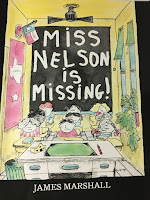Learning to Be Kind to Myself
Dear Readers,
There are so many hats that I wear at any given time, although these are generalized statements, there is truth to all of them.
(These include working with colleagues, parents, administrators and students.)
As a teacher leader, I am a driver. I set my mind to something, regardless of what it is and I make it happen to the best of my ability. In addition, I am also extremely analytical. I love research, data and working through processes, such as writing curriculum.
As a decision maker, I really take the time to listen, process, think and then respond.
As a problem solver, I like to think through several solutions to a problem before deciding on the most appropriate one.
As an educator, I would rather collaborate any day of the week than work independently. It has always been my nature to share, share, share.
As a literacy teacher, I have the patience, compassion, empathy, knowledge and understanding to build relationships, make connections and implement instructional practices that benefit all my students.
As a learner I am a sponge. I attend any professional development available to me, read every resource I can get my hands on and borrow ideas from amazing educators. I am never afraid to ask questions or admit I do not know something.
Seeing this written down, makes me feel very proud of myself. So, why did I have such high expectations for myself that were so unrealistic? Why did I feel as though I failed myself when I was unable to meet them?
Why was I so hard on myself?
One of the most beneficial things a mentor said to me once was, "Teresa, you are not perfect. Nobody is perfect." This person knew my work ethic, my drive, my knowledge, my passion for literacy, as well as my inability to say, "Teresa, you can make mistakes."
Ironically, my perfectionist type attitude was reserved for me only. Never, had I expected those around me to obtain perfection, I knew it was not achievable. I encouraged failure as part of the learning experience. My students knew that everything is a process and it is how we get there that is more important than the end result. I sat side by side with colleagues helping them plan lessons, integrate a new initiative or just listen.
Why was I unable to grant myself permission to make mistakes?
I am still not sure I know the answer to this question. Maybe it is because I saw it as a flaw in me when something went wrong. Maybe it is because my whole life I have tried to be perfect and never felt as though I measured up. Maybe it is because at one time I thought people would think less of me if I "messed up."
However, since that conversation with my mentor, I am much kinder to myself. I know it is not the end of the world if I messed up "the data" and it can indeed be fixed. I know that in 5 years it will not matter that I copied the wrong handout for a meeting. I know that worrying about things out of my control is not an advantageous use of my time.
Every day I work to not place expectations of myself on a pedestal that is unreachable. I do not expect that of others, why should I treat myself any differently?
Please check out #MyBad episode at Why Are We So Hard on Ourselves?
Please check out #MyBad episode at Why Are We So Hard on Ourselves?
Warmly,
Teresa























